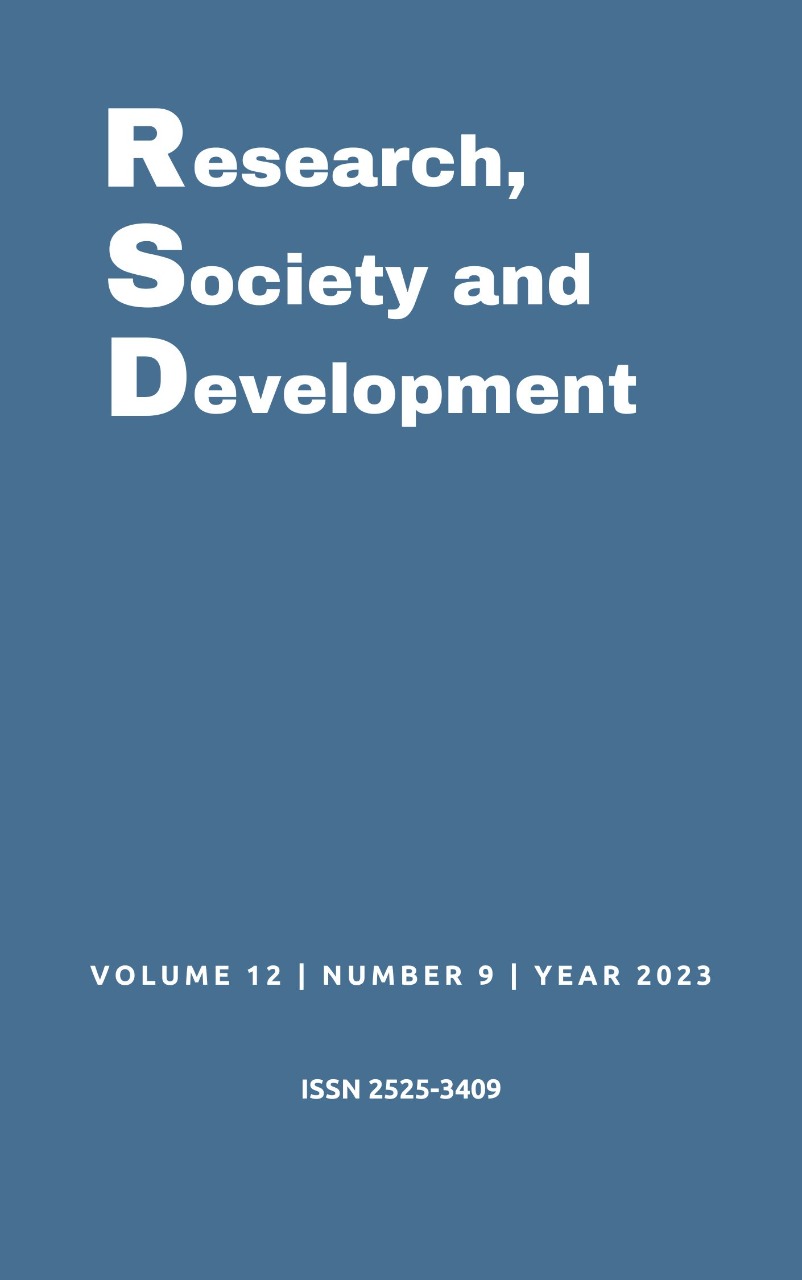Food waste matters - The policy implications and sustainability of food waste practices
DOI:
https://doi.org/10.33448/rsd-v12i9.42212Keywords:
Food waste, Food policy, Sustainability, Food waste practices.Abstract
Food waste has grown in the last couple of years and is recognized by the general public, governments, education, companies, and Non-Governmental Organizations (NGOs) to cause greenhouse emissions and resource reduction. In the food supply chain, food waste is generated at all levels. The purpose of this article is to use information from various scholarly articles to analyze the determinants of consumer food waste and the key elements that facilitate or hinder food waste activities. Furthermore, we briefly discuss the contributions of various theories in understanding food wastage. This analysis shows that food waste needs to be understood and tackled with the views of different disciplines because it is quite complex. Understanding the reasons behind food waste production would aid in the creation of food waste preventive measures and sustainability.
References
Alexander Y., Mehdi D., Pascal P., Olivier B., &Laurence G. (2020) Pro-environmental behaviors through the lens of the theory of planned behavior: A scoping review Resources, Conservation and Recycling (155), 104660-104670
Dahiya, S, Kumar A. N, Shanthi Sravan, J, Chatterjee, S., Sarkar, O., &Mohan, S. V. (2018). Food waste biorefinery: sustainable strategy for circular bioeconomy. Bioresour Technol. (248)2–12. 10.1016/j.biortech.2017.07.176
Evans, D. (2011). Beyond the Throwaway Society: Ordinary Domestic Practice and a Sociological Approach to Househol Food Waste. Sociology (46), 41-56. Retrieved November 28, 2020
Farr-Wharton, G., Forth, M., & Choi, J. (2014). Identifying Factors that Promote Consumer Behaviours Causing Expired Domestic Food Waste. Journal of Consumer Behaviour, 13, 393-402.
Food and Agriculture Organization. (2013). Food wastage footprint: Impacts on natural resources. Summary report. fao.ord/3/i3347e/i3347e.pdf
Food and Agriculture Organization. (2020). Technical Platform on the Measurement and Reduction of Food Loss and Waste. http://www.fao.org/platform-food-loss-waste/en/
Gunders, D., & Bloom, J. (2017). Wasted: How America is Losing Up to 40 Percent of Its Food From Farm to Fork to Landfill. The Natural Resource Defense Council.
Kummu, M., Moel, H. D., Porkka, M., Siebert, S., Varis, O., & Ward, P. J. (2012). Lost food, wasted resources: Global food supply chain losses and their impacts on freshwater, cropland, and fertiliser use. Science of The Total Environment, 438, 477-489.
Licciardello F. (2017). Packaging, blessing in disguise. Review on its diverse contribution to food sustainability. Trends Food Sci Technol. (65), 32–9. 10.1016/j.tifs.2017.05.003
Magnet. (2018). Food Waste Around the World. Retrieved November 29, 2020, from Magnet: https://www.magnet.co.uk/advice-inspiration/blog/2018/February/food-waste-around-the-world/
Russell, S. V., Young, C. W., Unsworth, K. L., & Robinson, C. (2017). Bringing habits and emotions into food waste behaviour. Resources, Conservation and Recycling, 125, 107-114.
Schanes, K., Dobernig, K., & Gozet, B. (2018). Food waste matters - A systematic review of household food waste practices and their policy implications. Journal of Cleaner Production, 182, 978-991.
Shove, E. (2020). Beyond the ABC:climate change policy and theories of social change. Environment and Planning A: Economy and Space, 1273-1285.
Stancu, V., Haugaard, P., & Lähteenmäki, L. (2016). Bringing habits and emotions into food waste behavior. Appetite, 96, 7-17. https://doi.org/10.1016/j.appet.2015.08.025
Tiffany M. W., Xinni X., Daniel C. W. T, Iris K. M. Y., & Chi Sun Poon (2020) Sustainable food waste management towards circular bioeconomy: Policy review, limitations and opportunities Bioresource Technology (297), 122497-122511
Thyberg, K. L., & Tonjes, D. J. (2016). Drivers of food waste and their implications for sustainable policy development. Resources, Conservation and Recycling, 106, 110-123. https://doi.org/10.1016/j.resconrec.2015.11.016
Wahlen, S., & Winkel, T. (2017). Household Food Waste. Reference Module in Food Science, 1-5. http://dx.doi.org/10.1016/B978-0-08-100596-5.03368-0
Wilson, D. C. (1996). Stick or carrot?: the use of policy measures to move waste management up the hierarchy. Waste Management and Research, 14(4), 385-398. https://doi.org/10.1006/wmre.1996.0039
Wohner, B., Pauer, E., Heinrich, V., & Tacker, M. (2019). Packaging-related food losses and waste: an overview of drivers and issues. Sustainability, 11(1), 264. doi:10.3390/su11010264
Yalvac, F., Lim, V., Hu, J., Funk, M., & Rauterberg, M. (2014). Social recipe recommendation to reduce food waste. CHI EA '14: CHI '14 Extended Abstracts on Human Factors in Computing Systems, 2431-2436. https://doi.org/10.1145/2559206.2581226
Downloads
Published
Issue
Section
License
Copyright (c) 2023 Ayobami Matthew Olajuyin; Hayatu Raji; Adaobi Iwu; Helen Okunbor ; Karis Albert; Adefunke Kafayat Olajuyin; Adekunle Toyin Bamigbade

This work is licensed under a Creative Commons Attribution 4.0 International License.
Authors who publish with this journal agree to the following terms:
1) Authors retain copyright and grant the journal right of first publication with the work simultaneously licensed under a Creative Commons Attribution License that allows others to share the work with an acknowledgement of the work's authorship and initial publication in this journal.
2) Authors are able to enter into separate, additional contractual arrangements for the non-exclusive distribution of the journal's published version of the work (e.g., post it to an institutional repository or publish it in a book), with an acknowledgement of its initial publication in this journal.
3) Authors are permitted and encouraged to post their work online (e.g., in institutional repositories or on their website) prior to and during the submission process, as it can lead to productive exchanges, as well as earlier and greater citation of published work.


